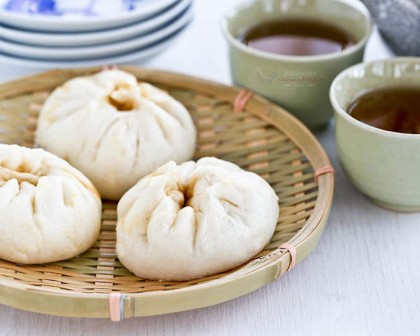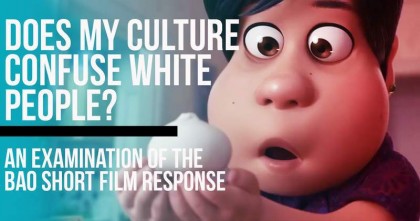Lughnasa Waning Summer Moon
If you haven’t seen Incredibles 2, and you probably haven’t if you don’t have children or grandchildren in the right age range, I’d encourage you to give it a shot. It’s actually a pretty good movie. But not my emphasis here. Rather, the short before it, Bao.
Controversial. Here’s a story about it, complete with spoilers that in this case I think are fine. I’d forgotten about the controversy. I read about it shortly after Incredibles 2 came out in the middle of June, and was intrigued, as I always am by cultural disjunction, cultural difficulties. But it went into the forget pile near some neuron or another.

Then I saw it yesterday with Gabe. It features a Chinese mother who makes dumplings. One of the dumplings comes to life and she raises him as her child. It’s a sweet story at first, then the dumpling becomes obstinate, wants to make his own choices. Finally, in the controversial moment, the dumpling has come home with a blond white woman. He packs his bags and starts to go out the door following his woman friend. The mother grabs him, pulls him back inside. You expect some kind of tearful resolution, hugs, then the mature dumpling goes away with his woman friend. Nope. She eats him.
 OMG! What just happened? It was shocking and I missed the point. Sort of. In a couple of scenes after this a dumpling like son comes home with the same woman who led the dumpling out the door. I took this to mean that the woman had somehow reconciled with the dumpling and he’d grown up. The eating in my understanding was a symbol of the difficulties inherent in the moment children become independent.
OMG! What just happened? It was shocking and I missed the point. Sort of. In a couple of scenes after this a dumpling like son comes home with the same woman who led the dumpling out the door. I took this to mean that the woman had somehow reconciled with the dumpling and he’d grown up. The eating in my understanding was a symbol of the difficulties inherent in the moment children become independent.

Turns out I was sort of right. But sort of not. As I now understand it, the mother actually ate the anthropomorphized dumpling. This expressed a mutual feeling of distress that Chinese mothers and their children have in U.S. culture. U.S. culture says leave at 18 and make your way in the world. Chinese culture says, live at home until you’re married and then, don’t go too far away. Though the leaving at age 18 in American mainstream culture (or, what used to be American mainstream culture), is fraught with similar issues, independence pushing away from interdependence, the expectation is that independence becomes a vehicle from which a new form of interdependence will arise. In Bao the dumpling eating shows the powerful rejection of that possibility in traditional Chinese culture, though I imagine the one-child policy in China has forced a new way of thinking in the home country.
Anyhow. Worth seeing. Always worth reflecting on cultural differences, worth learning from them. No rights or wrongs. Just differences that express the many possible responses to the ancientrail of humans in community and family and in ourselves.
